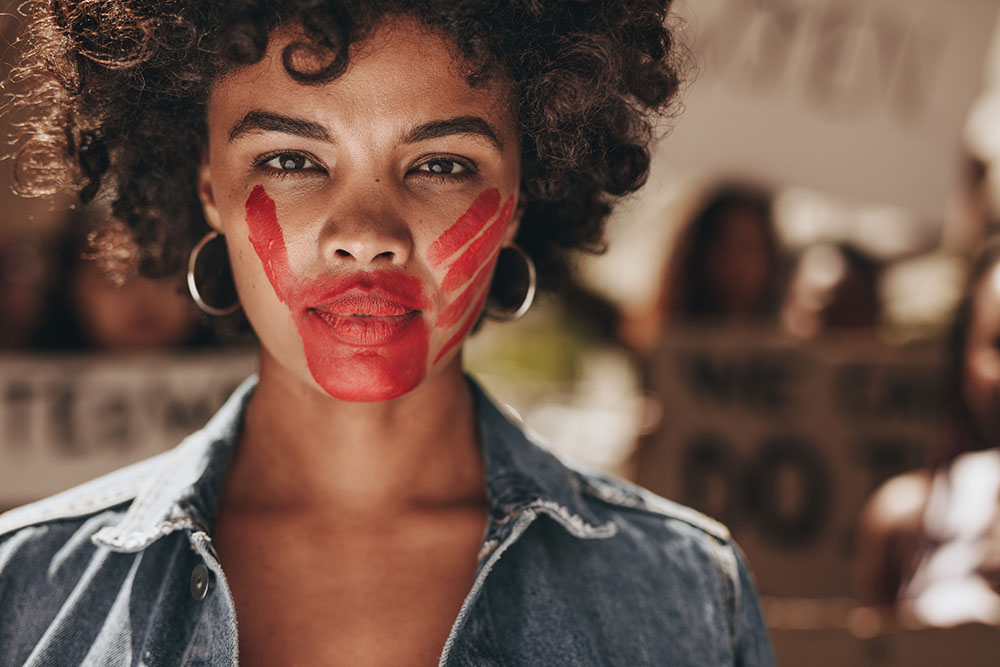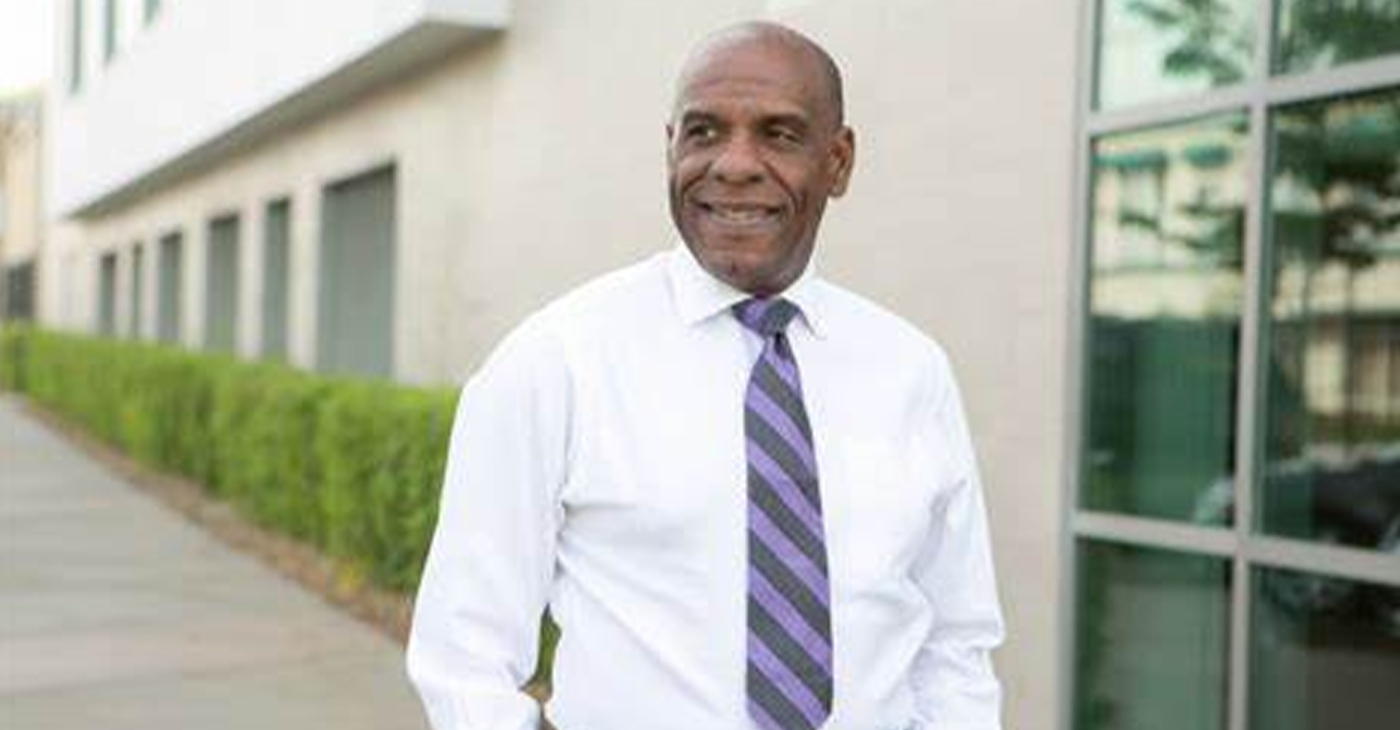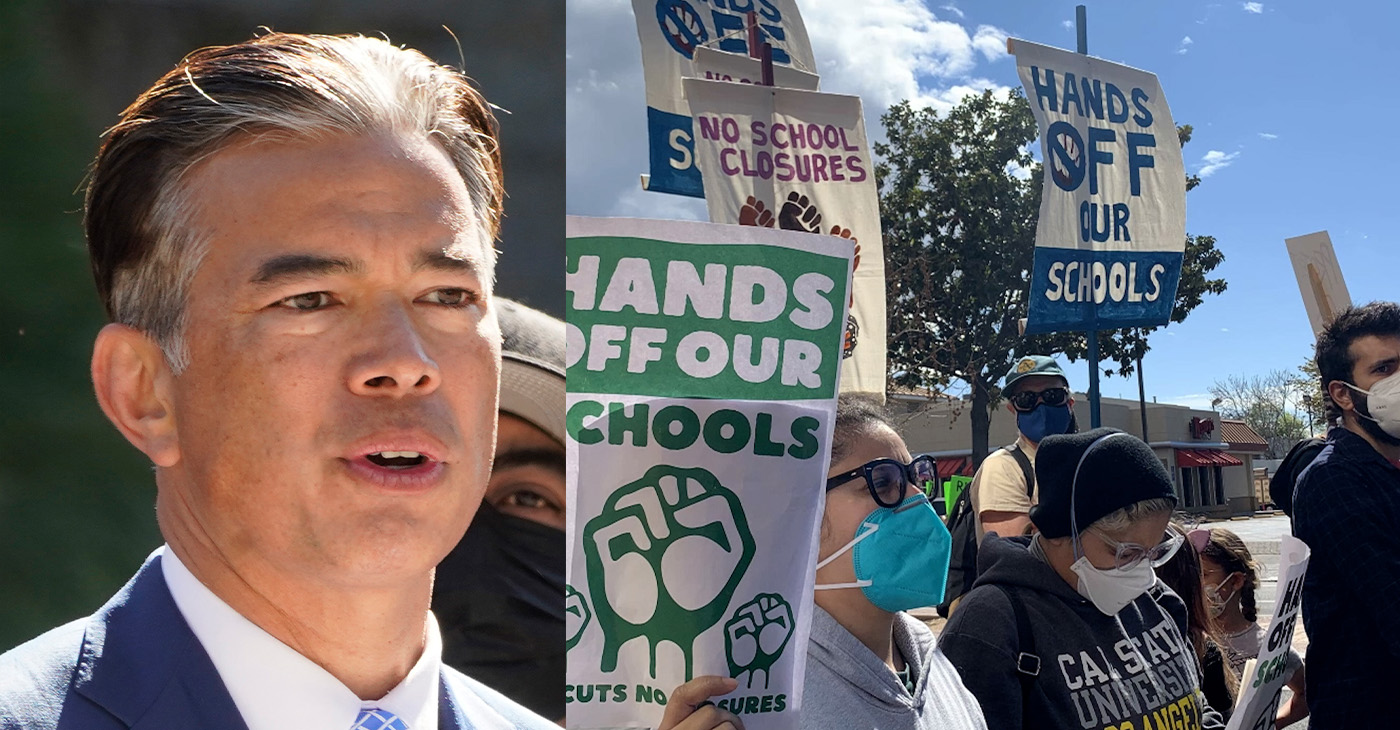Community
Don’t Criminalize Domestic Violence Survivors, Advocates Say
Problems plaguing people affected by domestic violence are often compartmentalized when law enforcement officers – as well as criminal justice and social welfare authorities — try to solve them.

Problems plaguing people affected by domestic violence are often compartmentalized when law enforcement officers – as well as criminal justice and social welfare authorities — try to solve them.
That is a fragmented approach, advocates argue, which helps neither victims nor perpetrators, and it does not lead to lasting solutions to the problem.
Instead, those advocates say, domestic violence must be approached wholistically. Every aspect of the issue must be considered. That not only helps to end the criminalization of people who survive it, they explain. It is also a better path to ending the cycle of trauma and dysfunction that triggers and sustains it.
One of those advocates Democratic is state Sen. Sydney Kamlager (D-Los Angeles), who introduced AB 118, or the “CRISES ACT,” in December 2020 while she was still serving in the Assembly.
The acronym CRISES stands for “Community Response Initiative to Strengthen Emergency Systems.”
AB 118 seeks to implement a pilot program that would empower community-based organizations to serve as first responders instead of the police. That would place domestic violence advocates, mental and public health professionals on the frontlines, responding to calls when there are incidents of intimate partner abuse or other acts of violence in people’s homes.
Kamlager initially introduced the CRISES Act as AB 2054 in February 2020.
AB 2054 passed in the Legislature unanimously, but Gov. Gavin Newsom vetoed it, saying the Office of Emergency Services was not the appropriate location for the pilot program as proposed in legislation.
However, its legislative successor AB 118 also passed unanimously in the Assembly and is currently being considered in the Senate Appropriations Committee.
Cat Brooks, co-founder of the Anti Police-Terror Project in Oakland, thinks the bill will pass this time around. She bases her optimism on the pressure elected officials may be feeling due to a growing movement in the streets of cities, and states across the country, that is pushing for alternatives to badges and guns responding to community crisis.
The Anti Police Terror Project is a Black-led, multi-racial, intergenerational coalition that seeks to build a replicable and sustainable model to eradicate police terror in communities of color.
“This current political moment sort of creates the perfect storm for bills like the CRISIS Act to make it through, so I’m hopeful,” said Brooks.
The organization worked with others to create the Mental Health First Oakland program, a non-911 mobile crisis response to domestic violence, interpersonal violence, substance abuse, mental health and other community crisis, according to Brooks.
“I’m a survivor of domestic violence, and the police came. And following my husband having beat-the-you-know-what out of me, I’m the one who ended up going to jail,” she recalled.
She was 19, Black, and a woman in Las Vegas, she says. Under the city’s Primary Aggressor Law, police can decide who is mainly responsible for the domestic violence.
“That’s how they took me to jail, even though my husband had not a scratch on him, and I was covered in scratches and bruises and bleeding,” said Brooks. “I was targeted as a Black woman by White law enforcement, and I was sent to jail, and that happens to women over and over and over again.”
Unfortunately, her story is not an exception, she said. She believes race had less to do with her arrest than gender.
“We have to remember that we live in a patriarchy, and we also have to remember that the least believed human being walking America’s streets is the Black woman. The most stereotyped is the Black woman. The image that is portrayed of us is loud-mouthed, crazy, out-of-control, angry, violent,” said Brooks.
How those stereotypes factor into how law enforcement officers treat Black women is not discussed nearly enough in public discourse. But far too often those interactions are deadly or violent, she argued.
Brooks’ personal ordeal, she says, led her to start disbelieving that police officers are her friends or that they would help her. In fact, quite the opposite, they could actually end up making things much worse, she said.
For the duration of that relationship, she had no one to call, so she said she just took the abuse, which, she says, is true for so many Black, Brown and Indigenous women.
“They don’t call anyone because they don’t want the police to kill them. They don’t want the police to kill their partners. They don’t want to go to jail,” said Brooks.
The tragedy helped propel her into activism and advocacy. Now, the Anti Police-Terror Project is on the verge of releasing its model for responding to interpersonal violence without police, she told California Black Media.
Members have worked closely with many organizations on the frontlines doing domestic violence work, because solutions must be local, said Brooks.
The organization provides principles and structures, but ultimately, the community must come together, identify where the safe house is, who the trauma responders are going to be, who are going to deal with the perpetrator in a way that’s not violent, and force accountability, without involving law enforcement, she explained.
According to Brooks, the Anti Police-Terror Project does a lot of educational work in the community, and they have found it interesting that mainstream media’s portrayal of abusers is like the 1984 movie, “The Burning Bed” starring Farrah Fawcett. In the movie, after nearly a decade of abuse, Fawcett’s character Francine Hughes douses gasoline over her sleeping husband and lights their bed on fire.
“They don’t think about that some families actually want to stay together, that some families actually want help for everybody. And for us, whether the family decides to stay together or not, we know that services and support and trauma work need to be done with both the perpetrator and the survivors. So, those are the kinds of things that we’re advocating for,” said Brooks.
The Oakland Post’s coverage of local news in Alameda County is supported by the Ethnic Media Sustainability Initiative, a program created by California Black Media and Ethnic Media Services to support community newspapers across California.
Community
Financial Assistance Bill for Descendants of Enslaved Persons to Help Them Purchase, Own, or Maintain a Home
California Legislative Black Caucus (CLBC) vice chair Sen. Steven Bradford (D-Inglewood) introduced new legislation related to reparations to the Senate Committee on Housing on April 2 in Sacramento. Senate Bill (SB) 1007, “establishes the Homeowner’s Assistance for Descendants of Enslaved Persons Program to make financial aid or assistance available to descendants for the purposes of purchasing, owning, or maintaining a home,” the legislation states.

California Legislative Black Caucus (CLBC) vice chair Sen. Steven Bradford (D-Inglewood) introduced new legislation related to reparations to the Senate Committee on Housing on April 2 in Sacramento.
Senate Bill (SB) 1007, “establishes the Homeowner’s Assistance for Descendants of Enslaved Persons Program to make financial aid or assistance available to descendants for the purposes of purchasing, owning, or maintaining a home,” the legislation states.
The Senate Housing Committee advanced the bill with an 8-1 vote. It will be re-referred to the Appropriations Committee for consideration.
Sen. Kelly Seyarto (R-Murrieta) was the only member who voted against the bill.
“SB 1007 is about starting a long process of paying back a debt that is not only owed, but that was also promised, and is 160 years overdue, to African Americans,” Bradford told the committee chaired by Sen. Nancy Skinner (D-Berkeley). “It is the first step in closing the wealth and equity gap created by centuries of slavery and racial discrimination policies.”
The bill aligns with one of the 115 recommendations listed in a two-year study conducted by the California reparations task force, of which Bradford was one of nine members.
Bradford said the report reveals that, in the state of California, a typical Black-owned home is 22% less valuable than a White-owned home.
Various advocacy groups from around the state attended the hearing held at the State Capitol Annex Swing Space. The California Housing Partnership, Bay Area Regional Health and Inequities Initiative, Coalition for A Just and Equitable California, Disability Rights of California, the American Civil Liberties Union of California, and California Community Builders all voiced their support of the bill.
Arts and Culture
Faces Around the Bay Dr. Carl Blake, Pianist
Born in Liberty, Missouri, Carl Blake, a virtuoso and respected pianist, made his most recent migration to the East Bay in 1999. One might have seen him performing recently at Noontime Concerts in San Francisco, or at the Piedmont Center for the Arts in Oakland. He is Director of Music at The Church for the Fellowship of All Peoples in San Francisco. He was also co-organizer and collaborative pianist at Herbst Theater for The Majesty of the Spirituals concert in 2022 and has held several church positions in the Bay Area.

By Barbara Fluhrer
Born in Liberty, Missouri, Carl Blake, a virtuoso and respected pianist, made his most recent migration to the East Bay in 1999.
One might have seen him performing recently at Noontime Concerts in San Francisco, or at the Piedmont Center for the Arts in Oakland. He is Director of Music at The Church for the Fellowship of All Peoples in San Francisco. He was also co-organizer and collaborative pianist at Herbst Theater for The Majesty of the Spirituals concert in 2022 and has held several church positions in the Bay Area.
Blake obtained a Bachelor of Music from Boston University and continued post-baccalaureate studies in Jamaica before earning a Master of Arts in Music at San Jose State University. He was the recipient of two Fulbright residencies in Honduras and completed a third residency at the University of St. Petersburg in Russia. He has a Doctor of Musical Arts from Cornell University.
At age 19, Blake, then an undergraduate piano major at Boston University, was “discovered” by Impresario Dr. W. Hazaiah Williams, who is the Founder and Director of Today’s Artists/Four Seasons Arts.
Williams honored Blake by awarding him the first Marian Anderson Young Artist Award. Anderson personally presented the award at the Masonic Auditorium in S.F. Subsequently, Blake was presented by Dr. Williams in his San Francisco debut at The Herbst Theatre. Williams subsidized a year of study abroad for Blake at the Paris Conservatory of Music. Additionally, Williams sponsored Blake’s New York Weill Hall debut, where he has performed twice since. Blake performed several times at the Yachats Music Festival in Oregon.
Blake continues to perform nationally and abroad. His hobbies are reading, baking and travel. He says, “I’m still pumping ivories, as Belgian pianist Jeanne Stark described the disciplined practice of concert piano.”
Community
AG Bonta Says Oakland School Leaders Should Comply with State Laws to Avoid ‘Disparate Harm’ When Closing or Merging Schools
California Attorney General Rob Bonta sent a letter this week to the Oakland Unified School District (OUSD) Board of Education saying the district has a duty to comply with state education and civil rights laws to protect students and families from “disparate harm,” such as segregation and discrimination, if the district goes ahead with school closures, mergers or consolidations in 2025-2026.

AG Bonta said DOJ investigation of 2022 closure decisions would have negatively impacted Black and low-income families.
By Post Staff
California Attorney General Rob Bonta sent a letter this week to the Oakland Unified School District (OUSD) Board of Education saying the district has a duty to comply with state education and civil rights laws to protect students and families from “disparate harm,” such as segregation and discrimination, if the district goes ahead with school closures, mergers or consolidations in 2025-2026.
The letter and an accompanying media release announced the findings of the California Department of Justice’s (DOJ) investigation into the OUSD Board’s Feb. 8, 2022, decision to close Parker Elementary, Brookfield Elementary, Carl B. Munck Elementary, Fred T. Korematsu Discovery Academy, Grass Valley Elementary, Horace Mann Elementary, and Community Day School and eliminate grades 6-8 of Hillcrest Elementary and La Escuelita Elementary.
“All school districts and their leadership have a legal obligation to protect vulnerable children and their communities from disparate harm when making school closure decisions,” said Attorney General Bonta.
“The bottom line is that discrimination in any form will not be tolerated,” he said. “I am committed to working with OUSD’s leadership to achieve successful outcomes for students.
“My office will continue to monitor OUSD’s processes and decision-making as it moves forward with the required community engagement, equity impact analysis, and planning to implement any future closures, mergers, or consolidations” to ensure compliance with California’s Constitution, AB 1912, and anti-discrimination laws.
By press time, the school district did not respond to a request for comment from OUSD.
The DOJ’s findings showed that the February 2022 decision, later partially rescinded, would have disproportionately impacted Black and low-income elementary students, as well as high-need students with disabilities, according to the media release.
The Attorney General outlined concerns about criteria OUSD has announced that it may rely on to determine future closures, mergers, and consolidations and provided recommendations to ensure OUSD does not violate state law, including prohibitions against closure decisions that reinforce school segregation or disproportionately impact any student group as required by the State Constitution, AB 1912, and anti-discrimination laws.
According to AB 1912, passed in September 2022, financially distressed school districts contemplating school closures, mergers, or consolidations must engage the community before closing schools; conduct an equity impact assessment; and provide the public with the set of criteria the district plans to utilize to make decisions.
In the letter, DOJ identified a “problematic” approach to planning for closing schools in 2025-2026 and “strongly recommends” steps OUSD should take going forward.
- “Take affirmative steps to ensure that its enrollment and attendance boundary and school closure decisions alleviate school segregation and do not create disproportionate transportation burdens for protected subgroups.”
- Don’t solely utilize criteria such as school facilities’ conditions, school operating costs, and school capacity without also including an assessment of past and present inequities in resources “due to educational segregation or other causes.”
- Some of OUSD’s proposed guidelines “may improperly penalize schools serving students with disabilities and students who have high needs.”
- The district’s decisions should also include “environmental factors, student demographics and feeder attendance patterns, transportation needs, and special programs.”
- Avoid overreliance on test scores and other quantitative data without also looking at “how each school is serving the needs of its specific student body, especially as it relates to historically marginalized communities.”
- “Engage an independent expert to facilitate community input and equity impact.”
The letter also emphasized that DOJ is willing to provide “feedback and consultation at any time during the process to ensure that OUSD’s process and outcomes are legally compliant and serve the best interests of the school community and all of its students.”
-

 Activism4 weeks ago
Activism4 weeks agoOakland Post: Week of March 20 – 26, 2024
-

 #NNPA BlackPress3 weeks ago
#NNPA BlackPress3 weeks agoCOMMENTARY: D.C. Crime Bill Fails to Address Root Causes of Violence and Incarceration
-

 #NNPA BlackPress3 weeks ago
#NNPA BlackPress3 weeks agoMayor, City Council President React to May 31 Closing of Birmingham-Southern College
-

 #NNPA BlackPress3 weeks ago
#NNPA BlackPress3 weeks agoFrom Raids to Revelations: The Dark Turn in Sean ‘Diddy’ Combs’ Saga
-

 #NNPA BlackPress3 weeks ago
#NNPA BlackPress3 weeks agoCOMMENTARY: Lady Day and The Lights!
-

 #NNPA BlackPress3 weeks ago
#NNPA BlackPress3 weeks agoBaltimore Key Bridge Catastrophe: A City’s Heartbreak and a Nation’s Alarm
-

 #NNPA BlackPress3 weeks ago
#NNPA BlackPress3 weeks agoBaltimore’s Key Bridge Struck by Ship, Collapses into Water
-

 Activism3 weeks ago
Activism3 weeks agoOakland Post: Week of March 27 – April 2, 2024

















































